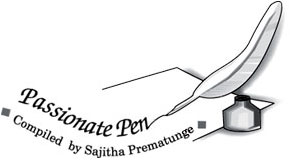
Fiction based on the reality of life
By Sajitha Prematunge
[email protected]
A lump rose in my throat as I read the last few lines in Aftermath,
as the soldier whose face was blown off was struggling to get on with
his life. I rediscovered the pass time of reading, reading the mango
tree, and at the office at that! I could never concentrate hard enough
to read a decent book, at the office.
But The Mango tree was surprizingly engaging, that I hardly had to
concentrate at all. The moment I read about it in Writers Den, I simply
felt compelled to read it. And then when I did get my hands on the book
and started reading it I was sure of my decision to interview the
writer.
|

Anthea Senaratne |
“I have locked my dogs up so they won’t attempt to greet you.” ‘All
the better’ was my immediate reflection. Although I am an ardent dog
lover, I do not appreciate being barked at due to an unconquerable
phobia. But as to the testimony of the servant, as well as the owners,
gathered that these two were another set of ‘seldom-bite dogs’.
The house, although based in Polhengoda, was complete with the grass
covered lawn, the cry of birds who’ve gotten used to visiting the urban
oasis and the usual ear-drooping, drooling eyed dogs I encounter
wherever I go.
The moment I walked in to the house I realized that this house had
something in common with the houses of most other established writers.
Whether it be Christine Wilson, Punyakanti Wijenaike, Vijita Fernando or
Seneka Abeyratne, their homes have a homely feeling, close to nature,
even if they are situated in the very heart of the city. Anthea
Senaratne’s house was no different.
It too, although situated in Polhengoda was a safe haven for
wildlife, home to a resident tortoise, visiting cats on the walls and
birds on trees. Explaining her unusual habit of talking to plants and
animals, she claims “Plants respond a lot to human feelings.”
Anthea Senaratna is a member of the Wadiya Group of Writers as well
as one of the secretaries of the EWC (English Writers Corporative). In
fact she is referred to, by her colleagues, as the moving spirit of the
EWC. “I have always liked writing. But was only relieved of my
responsibilities when my children entered the university.”
She started off, writing short stories for Lanka Woman and during
1994 to 2002 she wrote a number of travel articles to the Lanka Monthly
Digest. Her writings were also featured in Waves, the magazine by the
Wadiya Group of Writers and Channels magazine published by the EWC.
Referring to her relationship with the EWC and Wadiya Group of
Writers she says “It’s a pleasant relationship. You meet people with
common interests. You cannot talk about writing at a social gathering,
the way you do when you meet other fellow writers.” She started off as a
short story writer, but wrote poetry from time to time.
However she claims that the most comfortable form of expression, for
her, is prose. “At times I like poetry too, but I wish I could make it
better, sort of sharpen it up.” She has written no novels to-date and
says that she is keeping her fingers crossed on writing a novel one day.
Turning the attention to her style of writing, according to her, none
of her stories have a defined beginning or end. “Most of my stories have
a conflict that is resolved in an unexpected way at the end.” It’s also
evident that she prefers to write about the marginalized - the segment
of people who has no voice of themself.
“I have a sort of empathy and sympathy for people who can’t get what
they want. People who can’t help but succumb to circumstances.”
Her novels also rely a lot on realism - the reality of the everyday
life. “I think writing - even though it is fiction - has to be based on
real life.” Her protagonist is often someone who is poor, disabled or
disadvantaged in some way or another, for whom ordinary things in life
become a challenge.
Aftermath, in her recent collection The Mango Tree, is one such
example. “We used to do a lot of charity work for injured soldiers.” She
recounted a story of how a certain soldier simply refused to come out of
his room because his face was blown off.
She held the view that everyday life, for a person like him, becomes
more difficult than in the case of a person who had lost a limb.
“Everyone looks at your face when they talk. I just imagined what it
must have been like, coping with the stares, trying to get a job and fit
back in to society.”
Reading stories like Aftermath, it’s obvious that she does not pay
much attention to detail. “Everyone knows of the traumas of war. I
wanted to focus on the character. You only realise how significant a
part of the body your face is, when something traumatic like getting
your face blown happens.”
Moreover she does not describe her characters excessively. She holds
the view that the characters should speak for themselves. “It does not
matter whether they are short or tall, as long as they are accurately
portrayed in their speech and actions.”
She said that contemporary Sri Lankan English writing - both prose
and poetry alike, has improved a lot lately. “There are also a few good
novelists. It’s wonderful to pick up some of these new books that have
churned up. There is a lot of hope.”
She says that she strongly believes that the way to becoming a
successful writer is by reading. “I am an avid reader. But it’s
important to keep in touch with contemporary writing as well. It’s
interesting to discern the new trends and different nuances.”
Thomas Campbell Sentimental poet
Compiled by Ishara Mudugamuwa
[email protected]
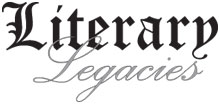 Thomas
Campbell was a Scottish poet chiefly remembered for his sentimental
poetry, dealing specially with human affairs. He was also a one of the
initiators of a plan to found what became the university of London. Thomas
Campbell was a Scottish poet chiefly remembered for his sentimental
poetry, dealing specially with human affairs. He was also a one of the
initiators of a plan to found what became the university of London.
He produced several stirring patriotic war songs. He was born in
Glasgow and was the fourth and youngest son of Archibald Campbell.His
father lost his money as a consequence of the American Revolutionary
war.
Campbell who was educated at the Glasgow High school and the
University of Glasgow, won prizes for classics and for verse-writing. He
spent his holidays as a tutor in the western highlands. His poem
“Glenara” and the ballad of ‘Lord Ullin’s Daughter” owe their origin to
a visit to Mull. In May 1797 he went to Edinburgh to attend lectures on
law.

The early days in Edinburgh influenced such works as “The Wounded
Hussar”, “The Dirge of Wallace” and “The Epistle to Three Ladies”. In
1799, six months after the publication of the Lyrical Ballads by
Wordsworth and Colridge, The Pleasures of Hope was published.
It is a rhetorical and didactic collection of poems in the taste of
his time, and owed much to the fact that it deals with topics near to
men’s hearts, with the French Revolution, the partition of Poland and
Negro slavery.
In 1803 he married his second cousin, Matilda Sinclair and settled in
London. In 1809 he published a narrative poem in the Spensorian stanza,
“Gertrude of Wyoming,” in which were printed some of his best lyrics.
This was the second of his great poems, and it was exceedingly admired.
In 1820 he accepted the editorship of the “ New Monthly Magazine,”
and acted in the capacity until he resigned it to take charge of the “
Metropolitan.” Many of his minor poems appeared in the” Magazine” and
one of these , “The Last Man” may be remarked among his greatest
conceptions.
In 1824 he published “Theodric and Other Poems” and though busy with
establishing the London University of his native city. He made a voyage
to Algiers, of which he published an account of, and in 1842 appeared a
slight narrative poem, unworthy of his fame, entitled “The Pilgrims of
Gleucoe.”
Among the literary engagements of his later years was a “Life of Mrs.
Siddons,” and “Life of Petrach”.
Critics may regard the comparative merits of his longer works; and as
they incline toward didactic or narrative poetry, may prefer one
composition to the other. Both are entitled to praise and honour, but it
is on his lyrics that the future reputation of Campbell must principally
rest.
They have taken their place, never to be disturbed, in the popular
heart and, until the language in which they are compared perishes, they
are certain to endure.
Thomas Campbell died at Bologe, July 15, 1844, at the age of sixty
seven. He was buried at Westminister Abbey.

My best friend - Gone forever
In my search for a friend,
Who could give me strength,
To do always what I wanted to.
Who could listen with an open heart,
And can be a light in the dark,
Where my life was always full.
I found you a friend,
Trusting you till the end,
And loved as much as I could do.
I vividly remember your smile,
Which made me smile, a while,
Bringing a tear drop to the corner of my eye.
Where have you now gone?
So be a fairy always at dawn,
I say this gazing at the heavens where you are now.
You were with me at every turn,
You gave me something for me to learn,
But still you remain the friend closest to my heart.
Mithya Kularatne
Surrounded by enemies

Comrade,
We are surrounded by enemies
There is no way to return
We will lose this war
Bravo, my child
Do not be negative
Look at the brightside in life
Even if in the battle field
Yes, we are surrounded by enemies
And there is no way to return
Attack my child, attack
Don’t fall on your knees
Be brave and attack on all directions
When surrounded by enemies
Even if your heart is bleeding
And knees are bruised
Do not accept defeat my child
Because attitude is what matters
In war and so as well in the journey of life
Nisansala Dharmasena
My father and his friend
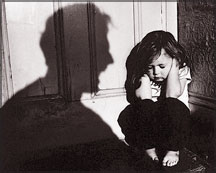
My father and his friend;
They shared a drink
One that could dissolve pain
A cent was spent from their hard-earned labour
Not a word was spoken
But together they set off for rest
I was looking at them.
In the growing darkness
My mother went for water
I put some sticks and fire was growing
I smelled of arrack The smoke filled the room.
We shared it too, together
They could not see me.
The moon was not over us.
But tiny stars - so far away they glittered
And we shared our space
Till my mother came back
With the broken pot in hand.
She could not see us.
She was tired.
We did not look at each other
It’s weird
I was tired.
I saw nothing but my father....
Menaka Chaminda
Highway
One more life wasted,
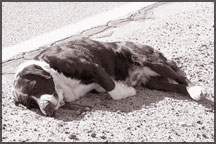
Rotting away
With the stench of autumn.
Stagnant leaves
Choked in black muck
And in putrid drains
The thick mud is oozing
And the last leaves are falling
From the maple tree.
A drunkard’s curse rents
The humid air: you dog.
Lie in the mud where
You belong.
The naked branches
Are sobbing;
Puny bodies revealed.
And words hang like
Icicles in the frozen air.
Silence. And then
The squelch of tyres
On a wet highway.
In a flash your life
Passes you by,
And the stench of decay
Fills your nostrils
Till you cannot breathe.
Pawan Madri Kalugala
This moment
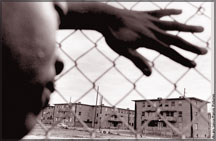
This moment half the globe is in dark slumber,
The other in daylight going here and yonder,
The affluent in the lap of luxury,
Others grovelling in hunger and poverty,
Some dance in fun and gaiety,
Whilst others, in sorrow, a loved one’s tragedy.
Some languishing behind bars, with lost freedom,
Others’ ruin lives, to kill boredom.
Some in earnest in meritorious deeds,
Others’ without a care, drowned in misdeeds
Some, suffering, about to leave the world,
Others’ being born, just entering the world.
This is the world we live in everyday,
This is the world we’ll leave one day.
Ansari Wahabdeen
|
